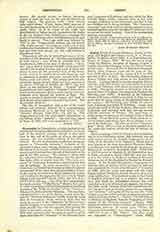

Cresconius (or CRISCONIUS), a Latin canonist of uncertain date and place, flourished probably in the latter half of the seventh century, though it may have been at the end of the sixth or even in the eighth century. He was probably a bishop of the African Church. We owe to Cresconius a collection of canons, known as “Concordia canonum”, inclusive of the Apostolic Canons (see Apostolic Canons), nearly all the canons of the fourth and fifth century councils, and many papal decretals from the end of the fourth to the end of the fifth century. The content is taken from the collection of Dionysius Exiguus, but the division into titles (301) is copied from the “Breviatio canonum” of Fulgentius Ferrandus, a sixth-century deacon of Carthage. In many manuscripts the text of Cresconius is preceded by an index or table of contents (breviarium) of the titles, first edited in 1588 by Pithou. In its entirety the work was first published by Voellus and Justellus in the appendix (33-112) to their “Bihliotheca Juris canonici’ (Paris, 1661), and is in P.L., LXXXVIII, 829 sqq. One of its best manuscripts, the tenth-century “Vallicellianus” (Rome), has a note in which Cresconius is declared the author of ametrical account of the “bella et victorias” of the “Patricius” Johannes in Africa over the Saracens. This was formerly interpreted to mean the African victory of the Byzantine “Patricius Johannes” in 697, hence the usual date of Cresconius. Some, however, hold that the poem in question is the “Johannis” of Flavius Cresconius Corippus, a Latin poet of about 550, and on this basis identify him with our canonist, thus placing the latter in the sixth century. Others (with Maassen, p. 810) while admitting that the poem in question can be none other than the “Johannis” of t’ne aforesaid Latin poet (unknown to Fabricius, and first edited by Mazzuchelli, Milan, 1820), maintain that it has been wrongly attributed to our Cresconius, and that it cannot therefore aid in fixing his date. The “Concordia canonum” was much used as a handy manual of ecclesiastical legislation by the churches of Africa and Gaul as late as the tenth century. Few of its manuscripts postdate that period.
JOHN WEBSTER MELODY

